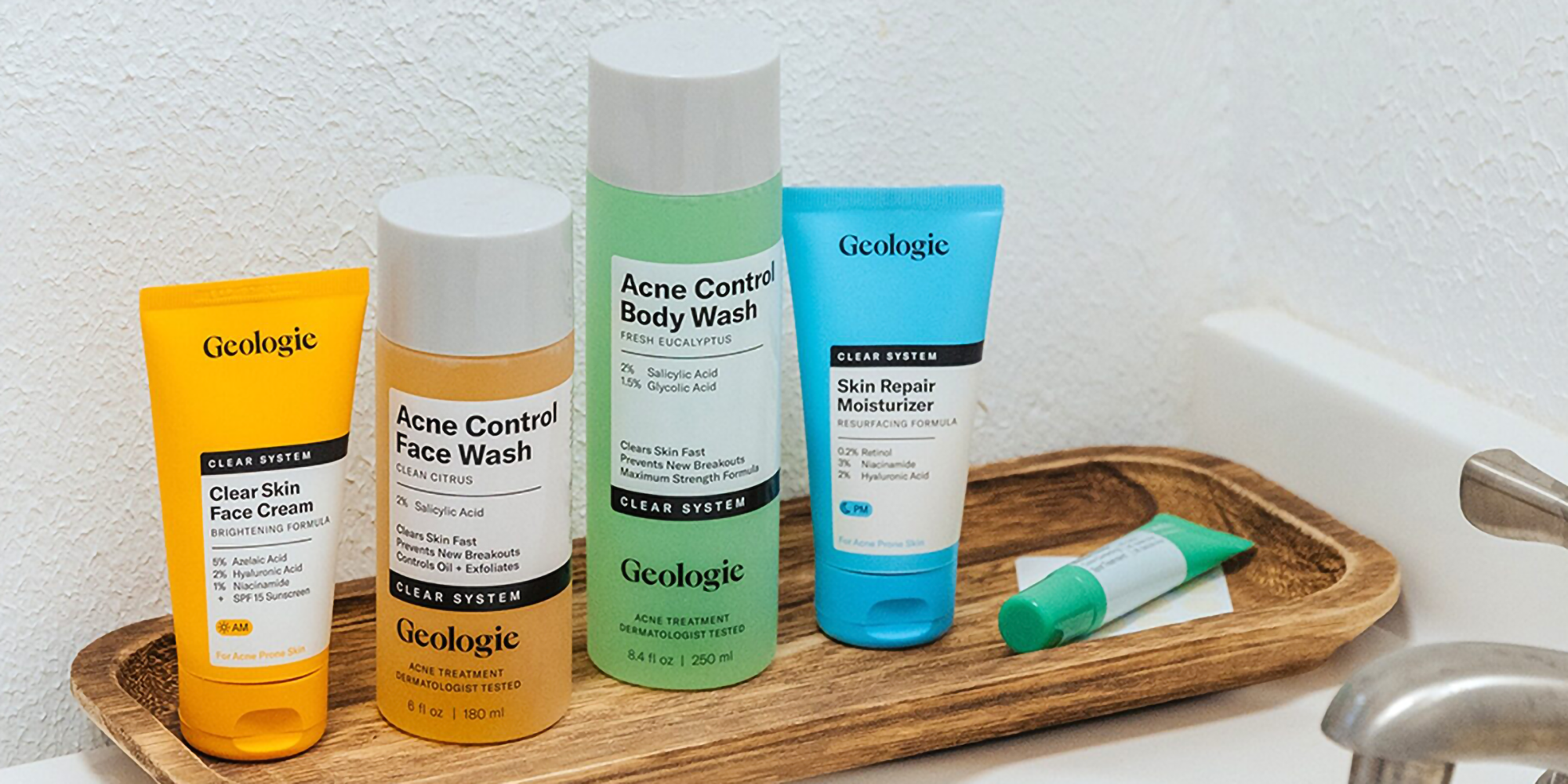
Megalabs Expands Portfolio With Purchase Of Skincare Brand Geologie
Supplement and pharmaceutical company Megalabs is stretching further into beauty and personal care with the purchase of Geologie.
Terms of the deal weren’t disclosed, but it comes roughly a year after Megalabs acquired hair growth brand DS Laboratories. Headquartered in Canelones, Uruguay and owned by billionaire brothers Andreas and Thomas Struengmann, Megalabs is growing its presence in the United States with Geologie. The men’s skincare brand was born in direct-to-consumer distribution in 2018 and made its retail debut in about 900 Target stores earlier this year with five skincare products, including Clear System, an acne-fighting set of three unisex products priced from $14.99 to $17.99.
“When we look at targets like, for example, Geologie, we look for people that do what they do with a lot of passion, and no doubt the people at Geologie made the brand what it is today because they did everything with a lot of passion and, of course, knowledge as well,” says Fabian Rivero, CEO of Megalabs USA. “It’s a good fit in that sense.”
Geologie co-founders Dave Skaff and Nick Allen have departed Geologie with the sale, although they expect to stay within the startup universe in their future endeavors. Rivero says the brand’s remaining around 15 employees are continuing with the company. Globally, Megalabs generates over $1 billion in revenues from more than 1,800 products and 8,500 employees. In the U.S., its offices are in Miami, and it has a team of about 80 people.
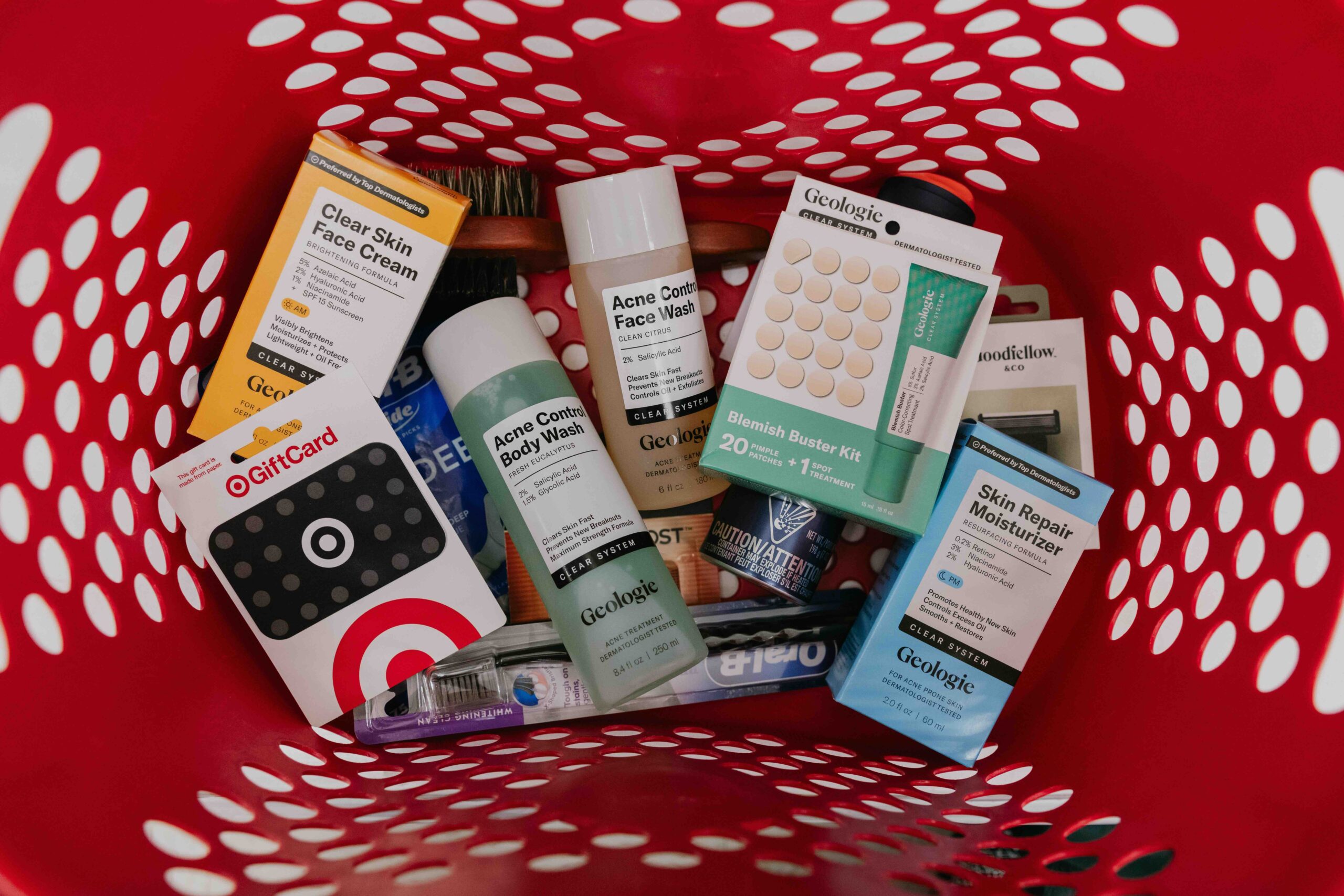
Allen wants Geologie’s deal to counter the despair he’s observed engulfing smaller brands about their exit prospects. “You read everywhere that, if you don’t have $100 million and you’re not growing at this [rate], there’s no way you’re going to exit. We were not doing $100 million in revenue,” he says. “I hope that this helps give a little hope for some brands that are discouraged that, it doesn’t have to be the biggest $1.9 billion Poppi home run, but if you have a good business, repeat customers and a great brand, there are bigger companies out there for you. This was a strategic acquisition and a great outcome for us.”
Megalabs plans to expand Geologie into Central American and South American markets, where it’s a fixture with a vast array of products. Among the assets in the company’s wide-ranging portfolio are women’s supplement brand Friska, cough syrup brand Prospan, stomach aide brand Glutapak R, laxative brand Prunelax, wound healing brand Abintra, and nutritional products and medical devices provider Victus.
“This was a strategic acquisition and a great outcome for us.”
Largely driven by direct-to-consumer sales to date, with subscribers accounting for over half its monthly revenue, Geologie still has plenty of runway left in the U.S. as it begins to build retail distribution. Skaff, partner and chief experience officer at e-commerce design and advertising agency The Science Project prior to Geologie, hints that it will enter additional U.S. retailers this year.
Last year, following controversial testing from laboratory Valisure revealing over-the-counter benzoyl peroxide products can form benzene, a chemical linked to leukemia and other blood cell cancers, inbound requests from retailers poured into Geologie. The brand’s Clear System avoids benzoyl peroxide and favors salicylic acid, azelaic acid, niacinamide, hyaluronic acid and retinol instead.
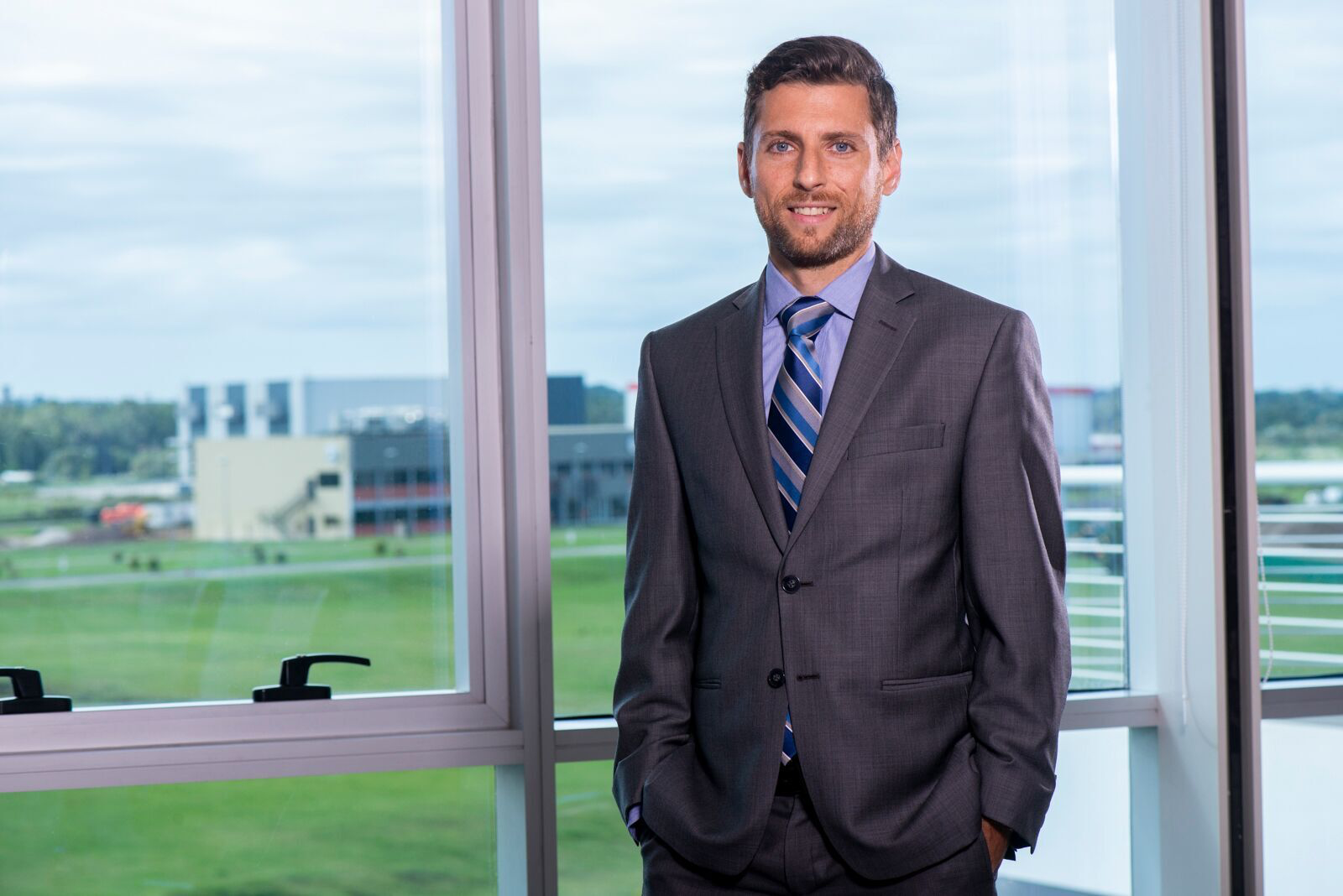
The search for benzoyl peroxide alternatives, Geologie’s emphasis on dermatologist-designed products (dermatologist Steve Xu has been involved in the brand since 2019) and its position in a men’s skincare market not as crowded as women’s skincare were important in its sale process. It hired investment bank Silverwood Partners to orchestrate the process. Allen had been through it before. He was previously co-founder, CFO and head of operations at Sidecar, a ride-sharing service acquired by General Motors in 2016.
It was amid Allen’s almost year-long tenure at GM post-acquisition that the idea for Geologie occurred to him. While at the auto giant, he was examining autonomous vehicle pilot programs internationally and picked up South Korean skincare products for his girlfriend during his travels. The products weren’t right for her, but he tried them and, while he’d never so much as washed his face in the past, he was surprisingly a fan. Subsequently, he purchased men’s skincare products in the U.S., and they didn’t stand up. Geologie was his attempt to do better.
“The old adage is true: If you can’t measure it, you can’t manage it.”
Men’s skincare has perennially been considered a category ripe for acceleration, and signs are emerging lately that it could be on the move. Last year, Mintel released data showing 52% of men use facial skincare products, up from 31% in 2022. The data also provided evidence of a willingness to invest in men’s skincare, with 42% of men 18 to 34 years old purchasing premium facial moisturizers over mass-market brands, and 33% of gen Z men trading up to premium skincare products.
“Us men, probably a couple of years ago, we weren’t as preoccupied or we didn’t see it as relevant to look at derm brands and take care of our skin or hair,” says Rivero. “But I think that, for the last year, you see more and more men actually having more knowledge of derm brands and that they do have to take care of their skin.”
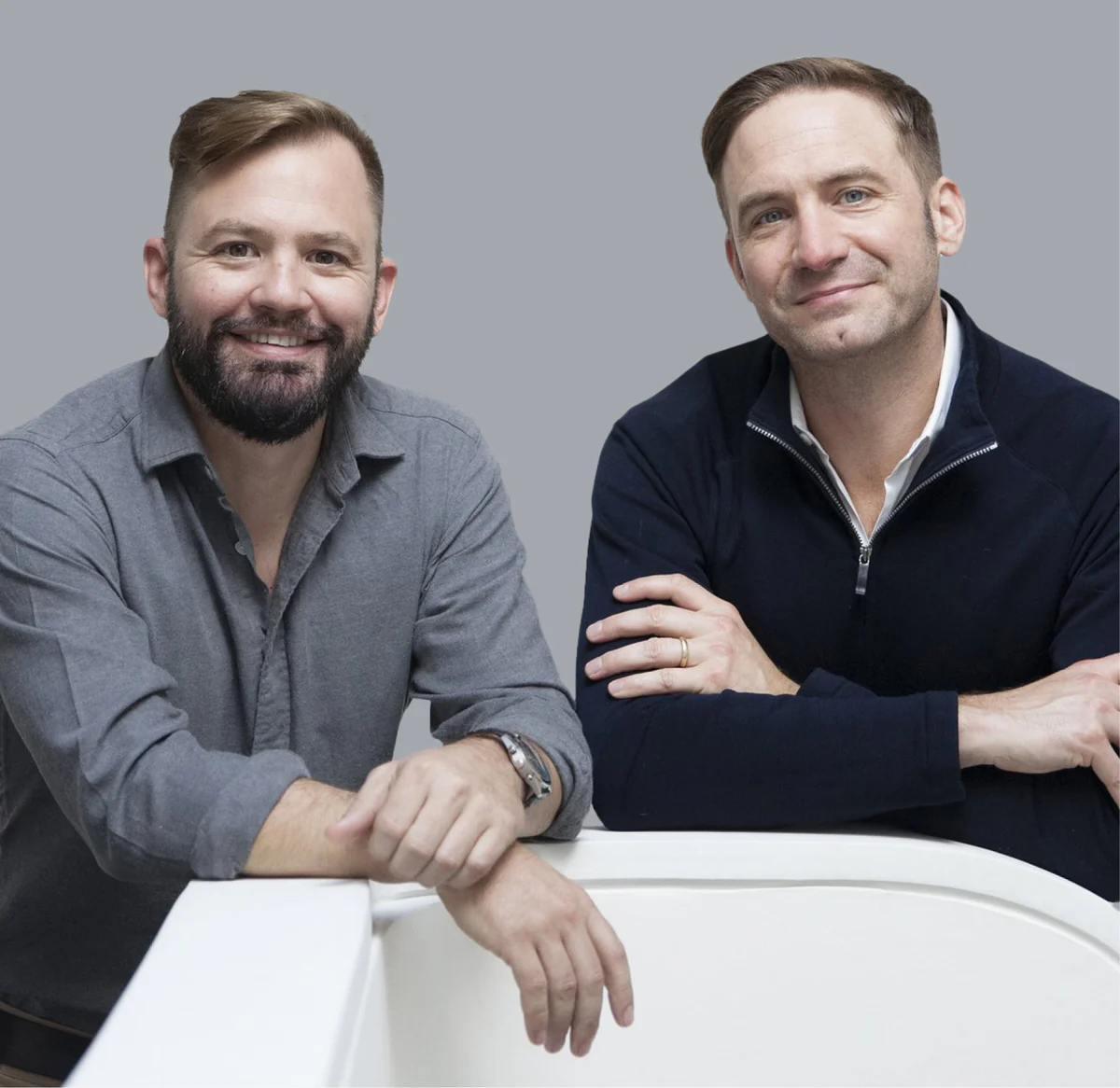
Reflecting on Geologie’s trajectory, Allen says one of its missteps wasn’t taking Amazon seriously sooner. Early last year, the brand went in-house with its Amazon operations, and its sales on the platform skyrocketed. One of its achievements was securing an exit without raising an eye-popping amount in advance of the exit. According to financial resource Pitchbook, Geologie raised about $10 million split between seed funding and debt.
“There’s not many brands starting anymore because the funding environment has really changed,” says Allen. “I consider us fortunate we didn’t raise too much, which was great because I know a lot of brands out there who raised $30, $40, $50 million and there’s no way that they’re going to make a return on that money.”
Discussing the funding environment for beauty and personal care brands broadly, he continues, “I really don’t think most CPG is appropriate for venture capital money. The design of VC is not for this. It takes time to build a brand if you force it down people’s throats. Of course, there are the Liquid Deaths of the world and those rare ones that do super well, but for most VC investors and founders, it’s a mismatch. I think the days of traditional VC in this are probably limited, if not gone.”
Skaff identifies Geologie’s biggest successes as realizing that funding was becoming difficult for consumer packaged goods brands, tracking a variety of metrics and emphasizing lean efficiency. “The old adage is true: If you can’t measure it, you can’t manage it,” he says. “We implemented a series of careful measurements in literally every single department. Of course, everybody’s paying attention to CAC, LTV, ROAS, etc., but there’s more data to measure. We had very detailed data for our shipping and fulfillment operations, which we ran in-house, supply chain, inventory, demand planning and customer service. So, we knew our baselines for what was healthy in every aspect of the business, and we were able to tell very quickly when any aspect of the business was lagging.”
Click here to secure Early Bird tickets to Dealmaker Summit happening November 10 & 11 in London.



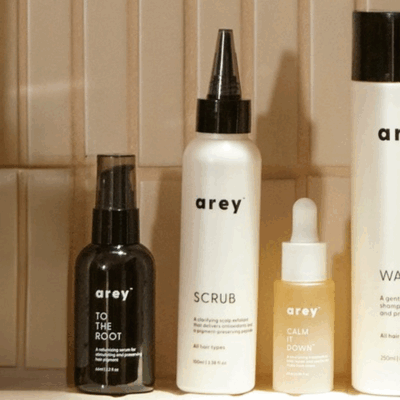

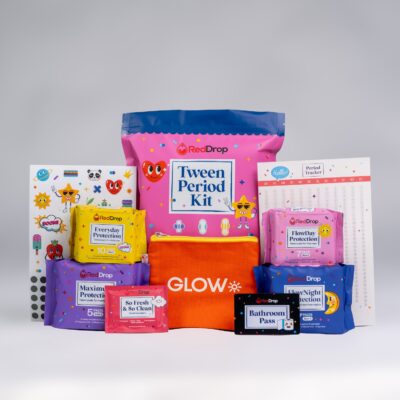
Leave a Reply
You must be logged in to post a comment.